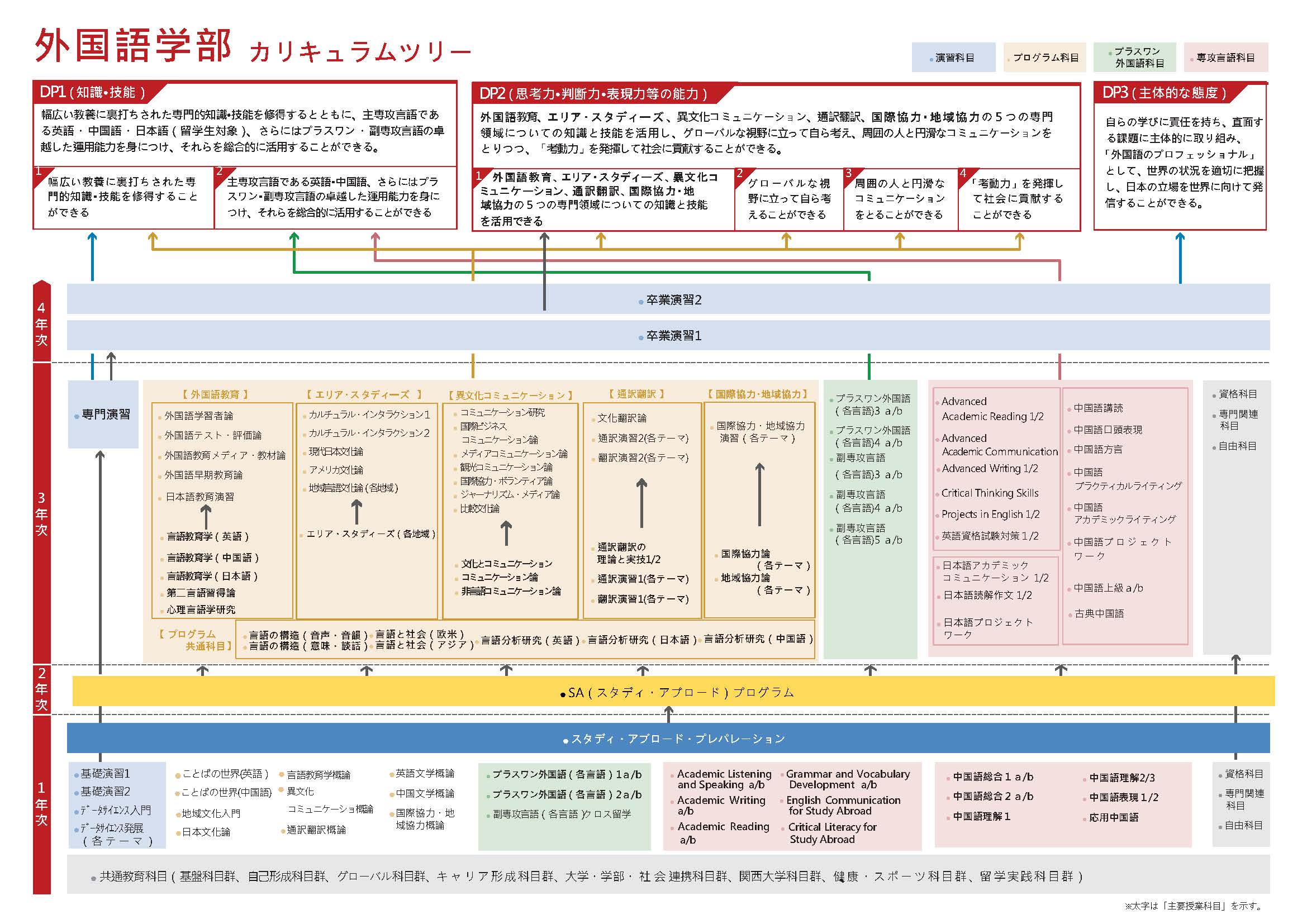What is the Faculty of Foreign Language Studies?
To realize "the cultivation of an international spirit" and "the need to acquire foreign language skills," which are two of the educational ideals of Kansai University, the Faculty of Foreign Language Studies was established in April 2009. This was the eleventh of the 13 faculties at Kansai University. It is our aim to foster professionals who can actively commit to and navigate the changing global community utilizing their expertise in foreign languages.
FEATURESThree Features of the Faculty of Foreign Language Studies

FEATURE #1
Developing foreign language skills in small classes
Upon enrollment, our students major in either English or Chinese. They can extensively train their language skills in small classes (usually 20 or fewer) in their first year. They can also select a second language as a minor foreign language of study from German, French, Spanish, Russian, Chinese (for English majors), and English (for Chinese majors). The students who minor in second foreign language will sufficiently train their language skills in small classes in the third and fourth years as well.


FEATURE #2
Study Abroad Program
Our faculty has a study abroad program, in which students spend their second year at an overseas university. There are currently 19 overseas universities affiliated with our study abroad program, and students can choose one based on the language(s) of their study. Study abroad experiences certainly enrich students' academic as well as personal life. They will improve their foreign language skills and gain knowledge in specialized academic fields related to language, culture, and communication; they will also learn about different cultures, histories, viewpoints, and lifestyles in the designated country. The credits earned through this program are included in the number of credits required for graduation, allowing students to graduate in four years.


FEATURE #3
Five Programs of Specialized Academic Fields
Five Programs of Specialized Academic Fields Students can acquire specialized academic knowledge relating to foreign language use through the five programs we offer in the third and fourth years of study: the Foreign Language/Communication Education Program, the International and Regional Cooperation Program, the Area Studies Program, the Intercultural Communication Program, and the Interpretation and Translation Program. Students can select the program(s) of their interest based on their study abroad experience (e.g., studying in introductory courses in a partner university, or direct cross-cultural experiences abroad) and their own curiosity. Well organized academic knowledge, in addition to expertise in languages, will help shape students into "foreign language professionals.
*Students who entered our faculty before 2022, the five programs are the Language/Communication Education Program, the Language Analysis Program, the Area Studies Program, the Intercultural Communication Program, and the Interpretation and Translation Program.

Educational PolicyThree Policies
- Diploma Policy
- Curriculum Policy
- Admission policy
The Faculty of Foreign Language Studies awards a bachelor's degree (Foreign Languages Studies) to those who have completed the prescribed course of study according to the curriculum policy of the Faculty and acquired the following (a) knowledge and skills, (b) abilities of thinking, judgment, and expression, and (c) proactive attitudes:
- Knowledge and Skills
Students acquire not only expertise in a wide range of liberal arts, but also have the abilities to use either English or Chinese, or Japanese for international students, as the major language and one more language as the minor language. - Abilities of Thinking, Judgment, and Expression
Students can use knowledge and skills in the five specialized programs of (a) Foreign Language Education, (b) Area Studies, (c) Intercultural Communication, (d) Interpretation and Translation and (e) International and Regional Cooperation. Moreover, they can think from a global perspective and contribute to the local community by applying Kansai University's "Think and Act" academic philosophy. - Proactive Attitudes
Students are responsible for their own learning and can cope with confronted problems proactively, and disseminate the position of Japan to the world by understanding enough of the world situation from the standpoint of "an expert of foreign languages."



